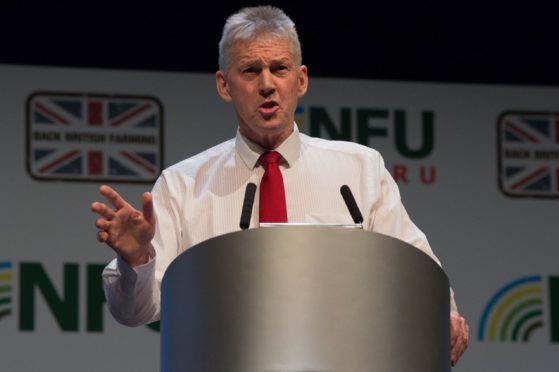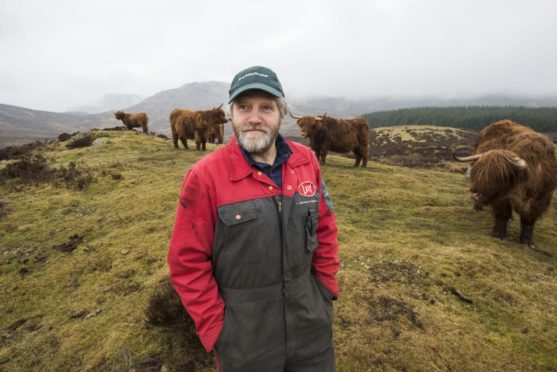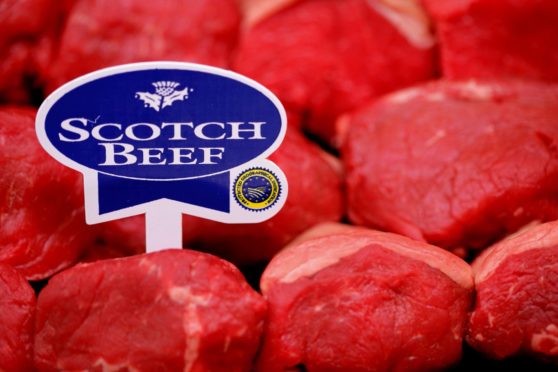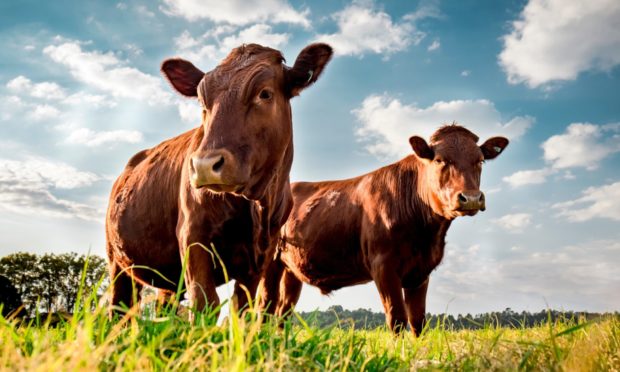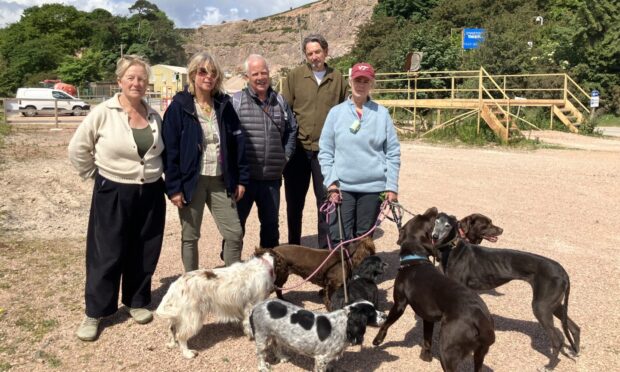Newly elected NFU Scotland (NFUS) president Martin Kennedy takes over the reins of the union at a time of great challenge.
Future Scottish farm policy, new trade deals, Brexit and the environment are all piled up in his in-tray
On future farm policy Martin must hope the next Government appoint a new Farm Minister willing and able to seize the opportunity of shaping a brand-new Scottish agriculture policy rather than constantly kicking the can down the road.
Any politician worth their salt would relish the once in a lifetime opportunity of breaking free from the outdated one size fits all Common Agricultural Policy (Cap) that rewards people for owning land.
Brexit may be done but the costly legacy of bureaucratic border controls is causing real problems for food exporters and there is an urgent need to sort it out ahead of the surge in lamb exports in the autumn.
However, the greatest challenge Martin and his team face is responding to the existential threat to the Scottish beef sector posed by climate change.
Until now the farming industry’s reaction to the headlines about “livestock farming killing the planet” has been one of anger, frustration and denial.
Many hope that the threat will just fizzle out and disappear – they could not be more wrong.
The pressure for change is ramping up not only from Government but from investors and consumers as well.
On the investment front I see that pressure for change as a trustee of the Meat and Livestock Commission pension fund.
There is a big push by the Pension Regulator to make sure the pension fund invests in companies and industries which demonstrate they are acting on the environment and climate change. No action, no investment.
Only last week Tesco was forced by investors to pledge a 300% increase in the sale of plant-based meat alternatives.
Consumers, especially younger ones, are starting to think about how their food impacts on the environment and are looking for more information. And there is talk of meat taxes being imposed to influence consumers away from red meat.
In Europe, a key part of the EU’s Farm to Fork strategy is to provide consumers with information on the sustainability of different foods, helping them to choose the most climate friendly products.
These measures are all aimed at making sustainability one of the key factors, consumers consider when purchasing food.
Last week I watched a BBC documentary that brought home to me how powerful information on sustainability could be in changing consumer choices and what a threat it is to the Scottish beef industry.
In the programme celebrity diners chose from a menu but instead of measuring the food on taste, it measured the carbon emissions of the food in kilograms of carbon emitted in producing a kilogram of food.
Some of the results were surprising.
For instance, the vegan lady who chose asparagus as a starter was astonished to discover that it had an extremely large carbon footprint because it had been imported from Peru.
British asparagus would have low carbon emissions but surprisingly if it had been shipped instead of being flown from Peru the imported asparagus would have been on a par with local product.
For the main course, the free-range chicken came out lowest at 6.5 kgs of carbon.
However, the celebrities were astonished to discover that if they had chosen the intensively produced chicken the carbon emissions would be 20% lower at 5.6kg
When it came to the highest carbon emitter everyone predicted it would be the steak that would be worst culprit.
Sure enough, the British steak produced 25kgs of carbon, nearly five times higher than the chicken.
The only consolation was the South American steak grown on deforested land produced a whopping 83kgs of carbon in producing one kilo of meat.
Information on sustainability will be commonplace in the future and you do not have to be a genius to work out the massive negative impact it could have on beef consumption if the industry fails to respond.
Until now the industry has looked in vain to the Scottish Government for leadership on this issue, but so far, the only response from the Minister has been a master class in obfuscation and delaying tactics.
Surely it is now time for NFUS, Quality Meat Scotland and the Scottish Association of Meat Wholesalers to step into the breech, provide the leadership that is missing and develop an industry plan on how to decarbonise the livestock sector.
NFUS could take the lead by coming off the fence and backing the English and Welsh unions pledge on carbon neutrality by 2040.
The next step is for industry leaders to get around the table and draw up a roadmap on the steps needed to deliver that goal.
Much of the hard lifting on identifying possible solutions has already been done by former NFUS Presidents Nigel Millar and Jim Walker in their respective reports.
These solutions need pulled together into a coherent and credible plan demonstrating to consumers, investors and Government that the Scottish beef industry can meet the sustainability challenge.
That would give substance to NFUS claims that the industry is part of the solution.
- George Lyon is a former MEP and a former president of NFU Scotland. He is a senior consultant for Hume Brophy.
